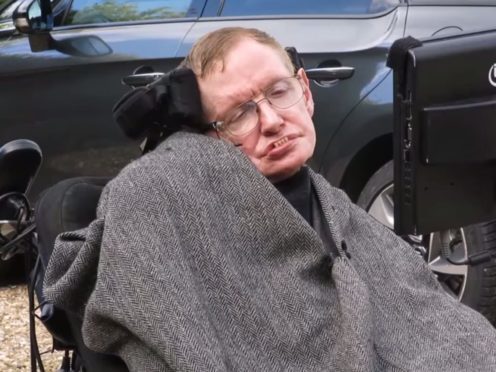Celebrities who doused themselves with freezing cold water for charity raised money and awareness of the condition suffered by Professor Stephen Hawking.
The Ice Bucket Challenge was one of the biggest social media campaigns of 2014 which led to millions of pounds being raised for motor neurone disease (MND) research.
The children of Prof Hawking, who lived with MND for five decades before dying aged 76, took part in the challenge on his behalf.
In a 2014 video clip, Prof Hawking is seen to say: “Because I had pneumonia last year, it would not be wise for me to have a bucket of cold water poured over me.
“But my children Robert, Lucy and Tim gallantly volunteered to take the challenge for me.
“I urge everyone to donate to the MNDA (Motor Neurone Disease Association) to eliminate this terrible disease.”
Scores of famous figures including Tom Cruise, Benedict Cumberbatch, David Beckham, Lady Gaga and Taylor Swift posted videos showing themselves getting a chilly drenching as part of the challenge.
More than 17 million people reportedly uploaded Ice Bucket Challenge videos to Facebook.
The campaign raised more than £87 million and funded six research projects.
One of these has since led to the discovery of a new gene linked to amyotrophic lateral sclerosis, also known as motor neurone disease.
Defective variants of the gene, NEK1, are only found in 3% of sufferers but are present in both inherited forms of the disease and “sporadic” cases without any family connection.
Scientists believe the gene could guide them to the development of potential new treatments.
The Project MinE study, which produced the discovery, was funded by US charity the ALS Association using money from the Ice Bucket Challenge.
